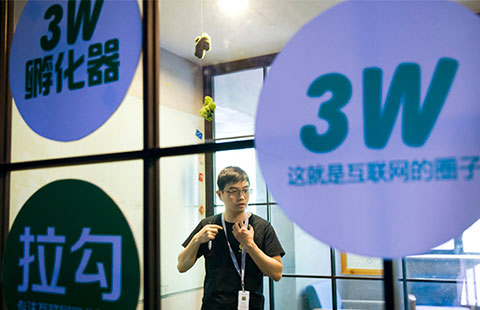Lenders tap online sources of growth
By Jiang Xueqing (China Daily) Updated: 2015-06-12 08:43Based on its customers' credit standing, ICBC will send instant text messages to credible customers once they spend more than 100 yuan on the platform, asking whether they want to apply for loans or not.
A customer can borrow 200,000 yuan at most for a maximum of three years at much lower lending rates, compared with the rates for Internet-based loans. Last year, the bank extended loans worth230 billion yuan via this service. The amount was about the same with that of peer-to-peer lending for the whole year.
Other large State-owned banks and major commercial banks have also established their own e-commerce platforms. The Bank of Communications Co Ltd provides diversified financial and everyday life services on its e-mall, ranging from bill payment, hotel booking, online shopping, loan application, wealth management to insurance and precious metal purchase.
The China Construction Bank Corp, the second-largest State-owned lender by assets, launched an e-commerce platform to support business-to-business and business-to-customer transactions, which recorded 46.28 billion yuan in 2014. As of the end of last year, the platform had 14,500 active merchants. The bank also allows registered clients and partners to publish buying and selling information on new and secondhand homes on its e-commerce platform. Homebuyers can search for housing information on its website and send online applications for mortgage to the bank.
Through its cooperation with Ningbo Bonded Area in Zhejiang province, CCB launched a cross-border online shopping service in August 2014, inviting overseas purchasing agencies to sell foreign products on the e-commerce platform. Total transactions of the service reached 3.12 million yuan at the end of January.
Mu Hua, a banking analyst at GF Securities, said in a report: "Banks will promote comprehensive development of their businesses by offering customized Internet financing services. The lenders can provide online credit extension to individual clients and allow them to enjoy various benefits, such as simplified application for loans, efficient bank approval and convenient repayment."
Compared with e-commerce platforms launched by Internet giants like Alibaba Group Holding Ltd, the risk control of banks' e-commerce platforms covers a wider range, which mainly includes market entry and exit, systemic risk management and online transaction risk management. Banks set much stricter requirements for merchants to enter their e-marketplace, Mu said.
However, the lenders also have distinct disadvantages in running an e-commerce business. "Traditional banks emphasize prudent management and safety. Their thinking is different from that of Internet firms, which have higher risk-tolerance and take more aggressive and flexible actions quickly," she said.
- Murdoch's sons to become CEO, co-chair at 21st Century Fox
- Drones fly over wheat field to spray insecticide
- China ready to trim stockpiles of cotton
- New rules for machinery exports
- Foreign investment rises on services momentum
- Industrial output rises 6.1% during May
- PBOC sees growing global role for yuan
- Tax refunds for more visitors

















